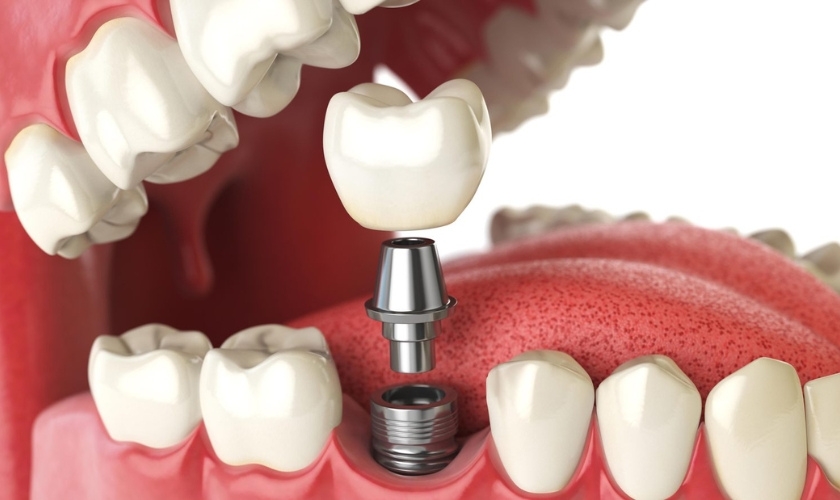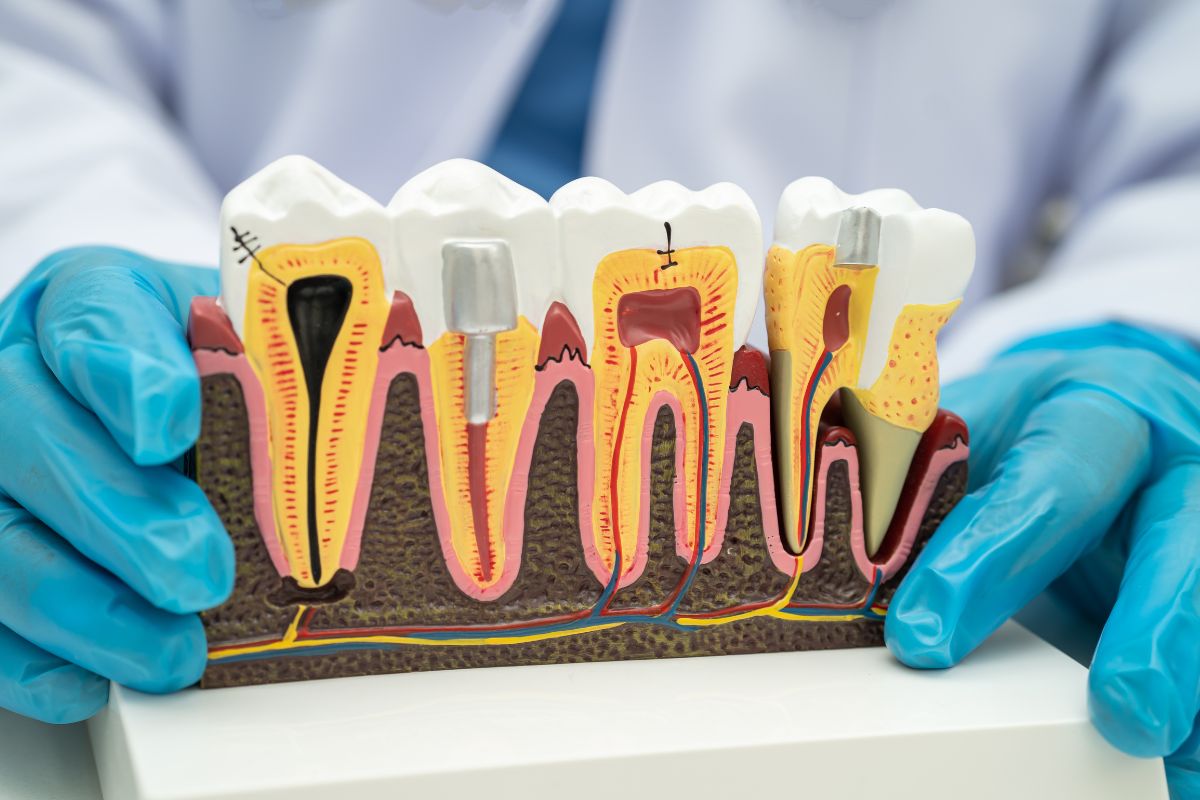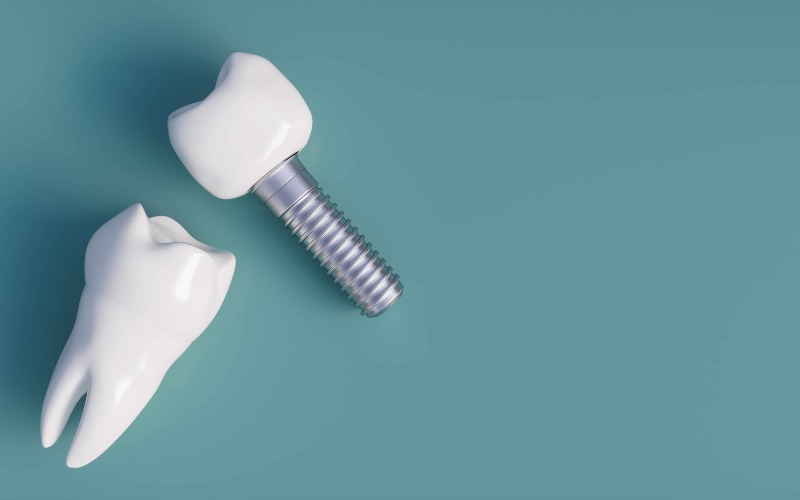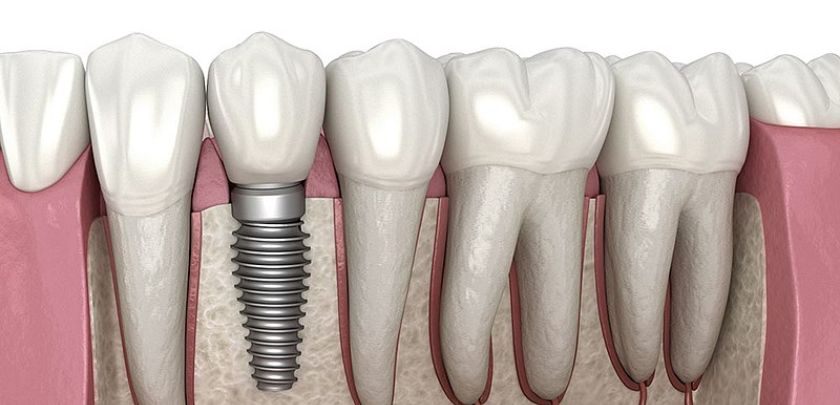New Patients Welcome!

Dental implants are a significant investment in both time and money, but the benefits they provide—such as improved appearance, speech, comfort, and oral health—make them worth it. To ensure that your dental implants last for many years, proper care and maintenance are crucial. In this comprehensive guide, we’ll explore expert tips and best practices for caring for your dental implants, helping you achieve long-lasting results.
Understanding Dental Implants
Before diving into care tips, it’s important to understand what dental implants are. A dental implant consists of three main components:
- Implant Fixture: A titanium screw that is surgically placed into the jawbone to serve as the root of the artificial tooth.
- Abutment: A connector placed on top of the implant fixture, which holds and supports the crown.
- Crown: The visible part of the implant, which is custom-made to match your natural teeth in shape and color.
Dental implants are designed to be a permanent solution for missing teeth. With proper care, they can last a lifetime.
The Importance of Proper Care
Caring for dental implants is essential to prevent complications such as infection, peri-implantitis (inflammation around the implant), and implant failure. Good oral hygiene and regular dental check-ups are key to maintaining the health and functionality of your implants.
Daily Oral Hygiene Routine
A rigorous daily oral hygiene routine is vital for keeping your dental implants in excellent condition. Here’s a step-by-step guide to follow:
1. Brushing
- Frequency: Brush at least twice a day, preferably after meals.
- Technique: Use a soft-bristled toothbrush and brush gently around the implant area to avoid damaging the gums. An electric toothbrush can also be effective in removing plaque and food particles.
- Toothpaste: Choose a non-abrasive toothpaste to prevent scratching the implant surfaces.
2. Flossing
- Frequency: Floss daily to remove plaque and debris between teeth and around the implant.
- Type of Floss: Use a floss specifically designed for dental implants, such as implant-specific floss or a water flosser, to ensure thorough cleaning without damaging the implant or surrounding tissue.
3. Mouthwash
- Usage: Rinse with an antimicrobial mouthwash daily to reduce bacteria and maintain oral health.
- Type: Choose an alcohol-free mouthwash to avoid irritation and dryness in the mouth.
Additional Care Tips
In addition to your daily oral hygiene routine, consider the following tips to ensure your dental implants remain in optimal condition:
1. Regular Dental Check-ups
- Frequency: Visit your dentist at least twice a year for routine check-ups and professional cleanings.
- Implant Monitoring: Your dentist will monitor the condition of your implants and surrounding gum tissue, checking for any signs of complications.
2. Avoid Hard Foods
- Risk: Biting into hard foods can damage the implant or crown.
- Alternatives: Cut hard foods into smaller pieces or opt for softer alternatives to reduce the risk of damage.
3. Quit Smoking
- Impact: Smoking can negatively affect the healing process after implant surgery and increase the risk of implant failure.
- Benefit: Quitting smoking improves overall oral health and enhances the longevity of your dental implants.
4. Wear a Mouthguard
- Protection: If you participate in contact sports or grind your teeth at night (bruxism), wear a mouthguard to protect your implants and natural teeth from damage.
- Custom Fit: A custom-fitted mouthguard from your dentist provides the best protection and comfort.
Recognizing and Addressing Complications
Despite following proper care routines, complications can sometimes arise. Being aware of the signs of potential issues can help you address them promptly.
1. Peri-Implantitis
- Symptoms: Redness, swelling, bleeding gums around the implant, and discomfort.
- Action: If you notice these symptoms, schedule an appointment with your dentist immediately. Early intervention is crucial to prevent further damage.
2. Implant Loosening
- Symptoms: Feeling that the implant is moving or shifting in place.
- Action: Contact your dentist if you experience any loosening. This could indicate a problem with the bone integration or the implant itself.
3. Pain or Discomfort
- Symptoms: Persistent pain or discomfort around the implant site.
- Action: Pain should subside after the initial healing period. If it persists, seek professional evaluation to determine the cause.
Long-Term Care and Maintenance
Maintaining your dental implants is an ongoing process that requires diligence and commitment. Here are some long-term care tips to ensure your implants remain healthy and functional for years to come:
1. Maintain Overall Health
- Diet: Eat a balanced diet rich in vitamins and minerals to support oral and overall health.
- Hydration: Drink plenty of water to keep your mouth moist and help wash away food particles and bacteria.
2. Address Changes Promptly
- Monitoring: Regularly check your implants and gums for any changes in appearance or sensation.
- Response: Promptly address any issues with your dentist to prevent minor problems from becoming major complications.
3. Stay Informed
- Education: Keep yourself informed about the latest advancements in dental implant care and technology.
- Consultation: Don’t hesitate to ask your dentist for advice or recommendations tailored to your specific needs.
Dental implants are a reliable and long-lasting solution for missing teeth, but their success heavily depends on how well you care for them. By following a thorough oral hygiene routine, attending regular dental check-ups, and being mindful of potential complications, you can ensure the longevity and health of your dental implants. Remember, your investment in dental implants is not just financial—it’s an investment in your overall well-being and quality of life. With the right care, your implants can provide you with a beautiful, functional smile for many years to come.





